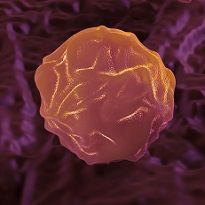Bipolar Patients' Skin and Stem Cells Aid Global Research Initiative
The stem cells can be turned into brain cells in laboratories, which can give scientists a better understanding of the genes and characteristics of brain cells that bipolar disorder patients have.

Sharing bipolar patients’ stem cells with researchers around the world can enable better understanding of the disorder and lead to new treatments, according to a press release from the University of Edinburgh.
Bipolar patients donated skin cells to researchers at the University of Edinburgh, which were then cultivated to produce stem cells. Unaffected family members of bipolar disorder patients also provided samples, all of which were then distributed via the European Bank for induced Pluripotent Stem Cells (EBiSC).
The stem cells can be turned into brain cells in laboratories, which can give scientists a better understanding of the genes and characteristics of brain cells that bipolar disorder patients have, the press release continued.
After distribution and analysis, the stem cells will be expanded and collected by the collaborators at the UK biotechnology company called Roslin Cell Sciences. Then, they will be made available for global research for academic and commercial analysts.
Part of the project came from the idea that the treatment for the illness has been halted by the inability to study what is going on inside the affected person’s brain cells, the press release continued. While many studies are based on animal research, it is not always an accurate reflection of bipolar disorder in human patients.
"Being able to grow brain cells from families with bipolar disorder represents a major addition to our research toolbox,” project leader Andrew McIntosh said in the statement. “It will enable us to discover what goes awry in the brains of people with bipolar disorder and a number of other psychiatric disorders. It will also provide a platform against which new and more effective therapies can be tried, reducing the need for animal experiments."
The project was funded by the National Centre for the Replacement, Refinement and Reduction of Animals in Research (NC3Rs) through the CRACK IT Challenge program. Lilly and Janssen Research and Development also contributed to the project as industry sponsors.
"The deposit of the cell lines from this project at EBiSC will enable other researchers to gain access to samples to undertake further research into this disease area,” Roslin Cell Sciences Chief Executive Aiden Courtney concluded. “This is exactly what EBiSC was set up to achieve."
Related Coverage:
Fibromyalgia Severity Linked to Depressive and Bipolar Symptoms
Drug for Schizophrenia, Bipolar Disorder Gets FDA Approval
Are Bipolar-Related Sleep, Wake, and Activity Cycles Inherited?